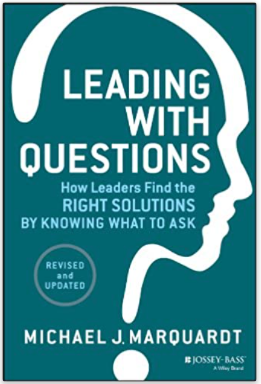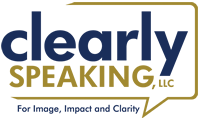Leading with Questions
 When you think about all the characteristics of a great leader, does the ability to ask empowering questions come to mind? Believe it or not there is a way to ask empowering questions and show that you are respectful, listening and caring.
When you think about all the characteristics of a great leader, does the ability to ask empowering questions come to mind? Believe it or not there is a way to ask empowering questions and show that you are respectful, listening and caring.
The reason leaders ask questions is because yesterday’s solutions will not solve tomorrow’s problems. Future leader’s need to know how to ask questions that foster curiosity, engagement, alignment and accountability. Here are a few examples of empowering questions:
- How do you feel about the project thus far?
- What have you accomplished so far that you are most pleased with?
- Which of these objectives do you think will be easiest to accomplish?
- Which will be most difficult?
- What key things need to happen to achieve the objective? What kind of support do you need to ensure success?
Contrast those questions with these examples of disempowering questions:
- Why are you behind schedule?
- Who isn’t keeping up?
- What’s the problem with this project?
- Whose idea was that?
- What were you thinking? (this one depends on the tone of voice)
Why as a leader should you care about asking the right type of questions with the right tone? Asking the right questions with the right tone helps you become a stronger leader by learning to listen effectively and creating a climate that encourages asking questions. A great resource that I use is “Leading with Questions” by Michael Marquardt.
In th is book, there are many examples of types of questions and when to use them. It is a wonderful resource that emphasizes the “art of asking questions.” The benefits of a questioning culture are vast as outlined in this book:
is book, there are many examples of types of questions and when to use them. It is a wonderful resource that emphasizes the “art of asking questions.” The benefits of a questioning culture are vast as outlined in this book:
- “Improved Decision Making and Problem Solving
- Greater Adaptability ad Acceptance of Organizational Change
- Motivating and Empowering Employees
- Stronger Teamwork
- Enhances Innovation
- Greater Self-awareness
- Greater Self-Confidence, Openness, and Flexibility
- Better Listening and Communication
- Better Managing Conflict
- Greater Understanding and Skills in Organization and political Realities
- Stronger Commitment to Learn and Develop
- Stronger Leadership”
When you lead with questions (instead of telling) you will define your leadership in ways that will make you stand out from the crowd. You don’t have to know all the answers; strengthening this skill set will set you apart. Of course, learning to ask the right questions is where the “art” comes in. It takes a lot of time and practice but well worth the effort.
